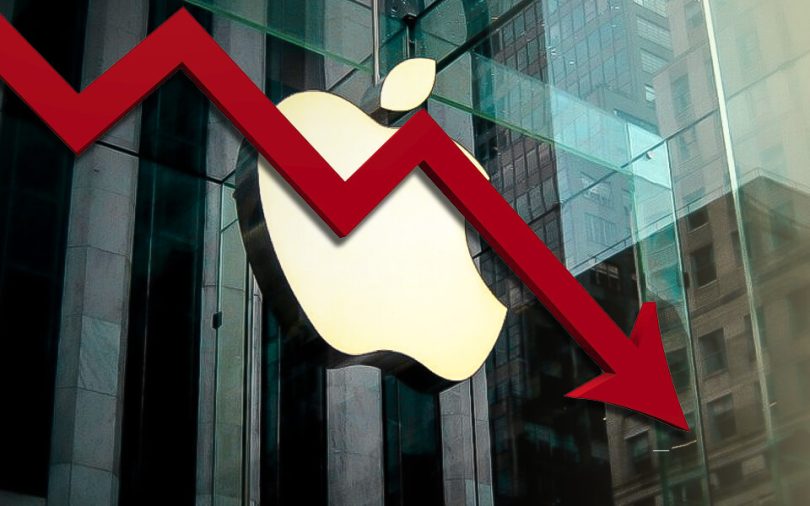On Tuesday, Apple Inc. narrowed sharply due to a previous dropdown last year, leaving it below $2 trillion for the first time since March 2021. This sell-off came after a year when the iPhone maker reached a $ 3 trillion market capitalization milestone.
Apple’s shares declined 3.7% to $125.07 after Exane BNP Paribas analyst Jerome Ramel downgraded the company’s status to ‘neutral’ from ‘outperform.’ According to Refinitiv Eikon, his devastating price target has also seen a steep drop from $180 to $140.
Aggravated investors are worried that the slowing global economy and high inflation may be hurting the demand for Apple devices, Nikkei reported. Further, they added Apple has asked its anonymous supplier to manufacture fewer units needed for earbuds, watches, and laptops.
The drop has lowered the market capitalization to $1.99 trillion. The shipment has also been affected. Ramel has to shrink his fiscal 2023 target to 224 million from 245 million units. The way this drop-down took place, it just came ahead of Microsoft Corp, which is being valued at $1.8 trillion.
According to Refinitv, investors are worried about consumer demand, and analysts are expecting a 1% drop in consumer demand across Cupertino, California in December’s quarter revenue, for the upcoming weeks. It will be counted as Apple’s first quarterly revenue decline since the March quarter of 2019.
‘They (Apple) tend to skew to the high-end consumer device customer, but even that demographic might be affected by the high price of everything.’ Bokeh Capital Partners’ Kim Forrest said.
One of the main reasons coming into notice is last year’s sell-off on wall street that has impacted Tech-related heavy weights. Investors are worried about increases in interest rates, dumped stocks, and high valuations.
The combined stock market value of Apple, Microsoft, Amazon.com Inc., Alphabet Inc., and Meta platforms now account for about 18% of the S&P 500, down from as much as 24% in 2020.
Even after the sharp drop of 27%, Apple is trying to maintain its goodwill in the market. As a result, the company has provided stellar returns to long-term stakeholders. Investors who bought and held Apple when Steve Jobs launched the iPhone in 2007 have enjoyed a gain of over 4000%, exclusive of dividends, compared to a 180% gain in the S&P 500 over the same period.
- Published By Team Australia News








